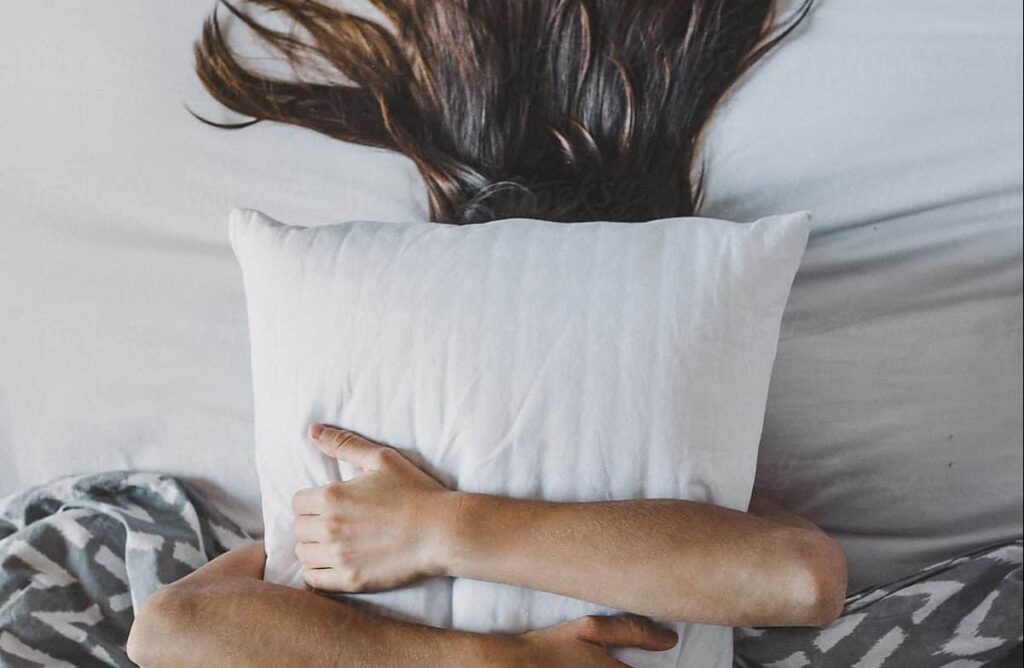Mental health issues can have a profound impact on the quality of sleep of an individual. In a sometimes vicious cycle, not sleeping well can make the symptoms of a mental health disorder worse. This close connection between sleep and mental health means that practicing good sleep hygiene is of high importance for those with mental health disorders. Sleep hygiene is the practices and habits that are necessary to getting quality and the right quantity of sleep.
Some good sleep hygiene practices include:
- Avoiding caffeine, cigarettes, and other stimulants for at least an hour before bedtime.
- Exercise is essential for restful sleep. However, you should avoid strenuous activity for several hours before going to bed.
- Limit daytime naps to no more than 30 minutes. A brief nap can help you feel more rested and alert, but sleeping longer than 30 minutes may leave you feeling groggy, and interferes with the ability to sleep well at night.
- Exposure to adequate sunlight during the day and darkness at night helps to maintain the sleep/wake cycle.
- Establish a relaxing bedtime routine. Whether it is a calming tea, reading, or listening to relaxing music, find a method that works for you.
- Maintain a comfortable sleep environment and keep it cool to have the best chance for restful sleep.
Having trouble sleeping or a sleep disorder is a potential symptom of almost every form of mental illness. When battling a mental health issue, disturbed sleep is often one of the first symptoms to manifest. Approximately 40% of those with insomnia also have a mental health disorder. Anxiety disorders are a common mental health issue, and approximately one in five Americans suffer from an anxiety disorder in some form. Anxiety keeps the nervous system on high alert, making it difficult to fall asleep. Lack of sleep makes symptoms of anxiety worse.
Sleep disorders are also common in those suffering from depression. Both insomnia (the inability to fall asleep and stay asleep) and hypersomnia (sleeping too long) can be a symptom of depression. As with anxiety, a lack of quality sleep can exacerbate the symptoms of depression. Those with depression and insomnia are statistically more likely to stay depressed. Although treating one disorder often results in improvement of the other, sometimes a multi-pronged approach is required.
Attention Deficit with Hyperactivity Disorder (ADHD) is another common mental health issue that overlaps with sleep disorders. The overlap is so significant that it can frequently confuse the diagnosis of ADHD, as the behaviors exhibited by children with a sleep disorder closely mimic the symptoms of ADHD. To further complicate the issue, the medications used to treat ADHD are notorious for causing sleep disturbances.
Post Traumatic Stress Disorder is another mental illness that interferes with sleep. Vivid nightmares of traumatizing events are common in those with PTSD. Those with PTSD can develop insomnia as an unconscious coping mechanism to avoid nightmares. PTSD is a serious disorder with an increased risk of comorbid psychiatric problems, as well as an increased risk of suicide. As with the other mental health disorders discussed, insomnia makes the symptoms of PTSD worse. Symptoms of PTSD include re-experiencing the trauma through intrusive thoughts and flashbacks, avoidance of people and places that serve as reminders of the event, and emotional numbness.
Cognitive Behavioral Therapy, counseling, and medications are all used as treatments for mental health disorders. They are also used as treatments for sleep disorders. If you practice good sleep hygiene and still suffer from a sleep disorder, your provider may refer you to have a sleep study done. The purpose of a sleep study is to define the reasons behind your sleep disorder. Medications for sleep disorders is usually reserved when all other treatment options fail.
Given the close association between sleep disorders and mental health issues, seek medical care for sleep issues that do not resolve with practicing good sleep hygiene. Occasional bouts of insomnia are common, but when insomnia persists, it could be a symptom of a bigger problem. If you suffer from a mental health disorder, and treatment for the disorder does not resolve the sleep disorder, then separate treatment may be considered to address the sleep disorder.



